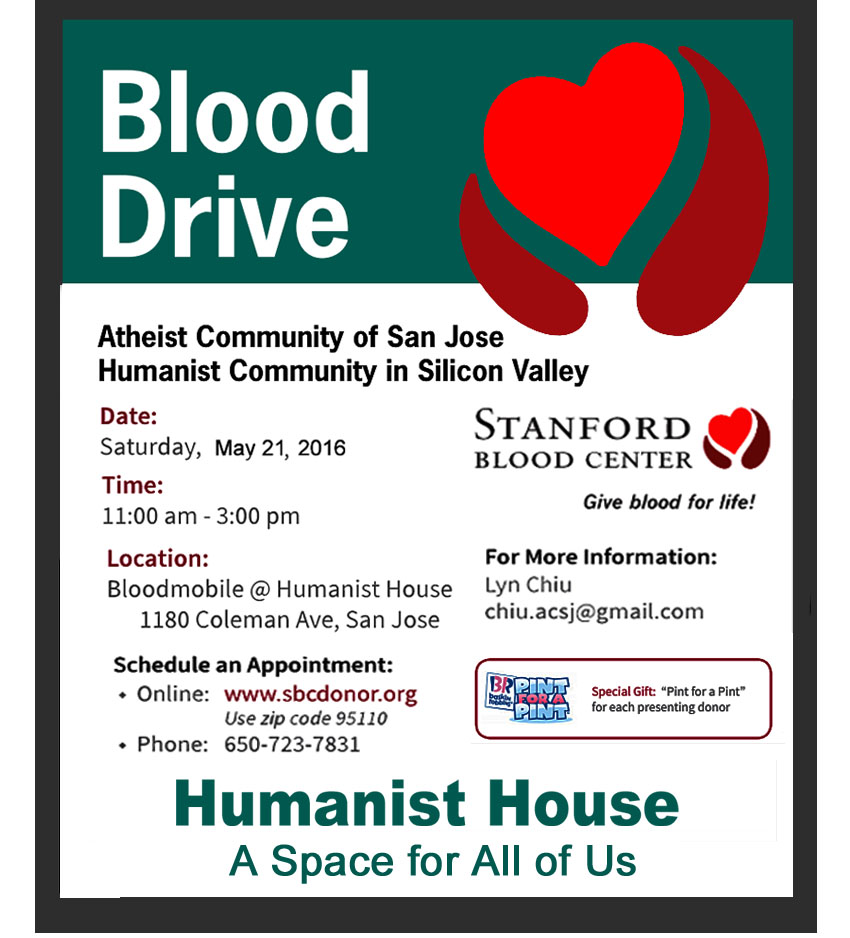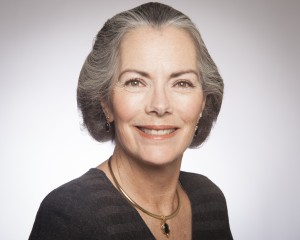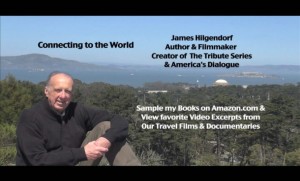Facilitated by Paul Gilbert
January 24, 2016
Longtime Humanist Community member and leader Paul Gilbert will show a video, and lead a discussion, about inequality.
January 24, 2016
Longtime Humanist Community member and leader Paul Gilbert will show a video, and lead a discussion, about inequality.
The Atheist Community of San Jose and the Humanist Community in Silicon Valley are hosting a blood drive on Saturday, May 21, 2016 from 11:00-3:00 at 1180 Coleman Avenue, San Jose, California. You may walk in, schedule an appointment on-line, or schedule by calling (650) 723-7831. Please note the ZIP code for this drive is 95110.

January 17, 2016
Adam Frogel has an M.S. from U.C. Berkeley, and worked as an interpreter, translator and transliterator for 42 years. He will discuss the above topic.
January 10, 2016
In doing the research for her new book Belle La Follette: Progressive Era Reformer, Santa Clara University Associate History Professor Nancy C. Unger discovered that the work of previous historians (including herself!) had drastically underestimated this great humanist (1859-1931). Come discover the surprising truths about the radical reformer denounced as “disgraceful to the white race” who fought for votes for women, peace, civil rights…and more. This presentation, richly illustrated by PowerPoint images, will present Belle La Follette as a model of progressive reform for 2016.

January 3, 2016
James Hilgendorf (http://www.jameshilgendorf.org) is a filmmaker, speaker, and the author of ten non-fiction books. He and his wife Elizabeth have been practicing Buddhism for forty-three years with the Soka Gakkai International (http://www.sgi.org). He will discuss:
Arnold Toynbee – State of the world. Where are we heading three thousand years from now?
Physics: The shift from classical to quantum. Holograms. You are the Center.
Death. Leo Tolstoy, and the Light at the End of the Tunnel.
Happiness: Relative and absolute. Not what you’d expect. Love of fate. There are no negatives.

Humanist Community Forum (2016-01-03): Life, Death, & The World (with a little Happiness thrown in) – James Hilgendorf from Humanist Community-SiliconValley on Vimeo.